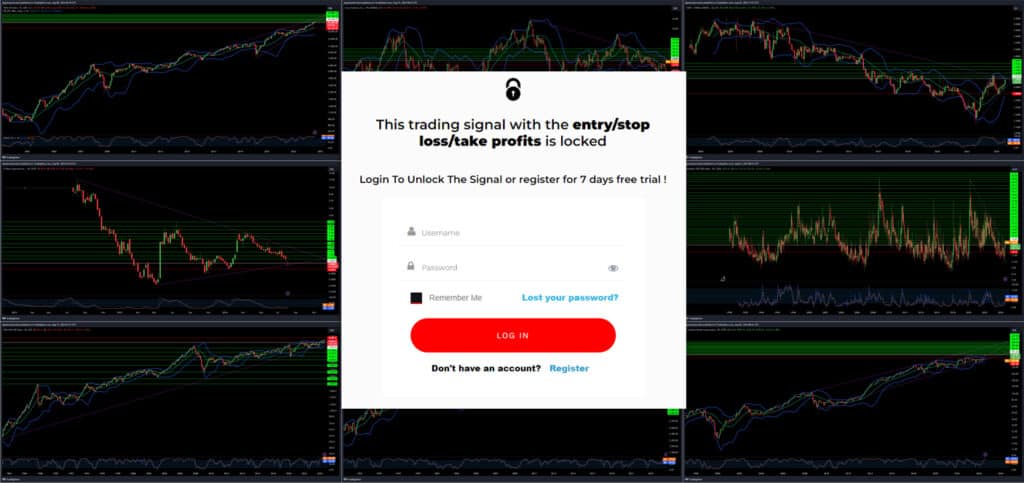When it comes to trading CFDs (Contracts for Difference), selecting the right broker is crucial for your success. With numerous options available, it can be challenging to determine which broker is best suited to meet your individual needs and preferences. However, by considering key criteria during the selection process, you can make an informed decision and ensure a seamless trading experience.
Key Takeaways:
- Regulatory compliance and security are essential criteria when choosing a CFD broker.
- Evaluate the trading platform and tools to ensure they meet your needs.
- Consider the range of tradable assets and markets offered by the broker.
- Take the time to research, compare, and read reviews before making a final decision.
- Choose a CFD broker that aligns with your trading goals and preferences.
Understanding CFDs and Their Importance in Trading
Before diving into the criteria for selecting a CFD broker, it’s important to understand what CFDs are and their significance in trading. A CFD (Contract for Difference) is a financial derivative that allows traders to speculate on the price movements of various underlying assets, such as stocks, commodities, or currencies, without actually owning the asset.
CFDs are popular among traders due to their flexibility, leverage options, and ability to profit from both rising and falling markets. With CFDs, traders can take long or short positions, depending on their market predictions, allowing them to potentially generate profits in any market condition.
Key Benefits of CFDs
“CFDs offer unique advantages for traders, providing opportunities to diversify their portfolios, manage risk, and potentially increase their returns.”
Here are some key benefits of CFDs:
- Diversification: CFDs allow traders to access a wide range of markets and asset classes, enabling them to diversify their investment portfolios and minimize exposure to any single asset or market.
- Leverage: CFDs offer traders the opportunity to increase their market exposure by utilizing leverage. This means that traders can control larger positions with a smaller initial capital investment, potentially amplifying their profits (but also increasing their losses).
- Profit from Both Rising and Falling Markets: CFDs enable traders to speculate on price movements in both upward and downward directions. This flexibility allows traders to take advantage of market volatility and potentially profit from any market condition.
- Access to International Markets: With CFDs, traders can easily access and trade international markets without the need for multiple brokerage accounts or dealing with complex regulations.
- Hedging: CFDs can be used as a hedging tool to protect against potential losses in other investments. Traders can open positions that offset the risks of their existing portfolio, reducing the overall risk exposure.
By understanding the benefits and mechanics of CFDs, traders can make informed decisions about integrating them into their trading strategies. Now let’s explore the criteria for selecting the right CFD broker to maximize your trading experience and success.
Regulatory Compliance and Security
When it comes to choosing a CFD broker, regulatory compliance and security should be your top priorities. Ensuring that the broker is regulated by reputable financial authorities is essential for the safety of your funds and overall trading experience. Look for brokers who are registered with well-known regulatory bodies such as the Financial Conduct Authority (FCA) in the UK or the Securities and Exchange Commission (SEC) in the US. These regulatory bodies enforce strict standards and provide safeguards to protect traders’ funds and rights.
Additionally, you should evaluate the security measures implemented by the broker to safeguard your personal information and financial transactions. Encryption technology is a crucial aspect of maintaining data security. A broker that utilizes strong encryption ensures that your communication and transactions are protected from potential threats.
Another important security aspect to consider is the use of segregated client accounts. This practice ensures that your funds are kept separate from the broker’s operational funds, thus providing an extra layer of security for your investments. By choosing a broker that prioritizes regulatory compliance and security, you can trade with peace of mind knowing that your funds and personal information are well-protected.
Trading Platform and Tools
When it comes to choosing a CFD broker, the trading platform and tools they offer can make a significant impact on your trading experience. It’s essential to find a platform that is user-friendly, intuitive, and equipped with a comprehensive range of features and tools to enhance your technical analysis, charting, and order execution.
Whether you’re a beginner or an experienced trader, having access to the right tools can significantly improve your trading decisions and overall profitability. Look for a CFD broker that provides a platform with:
- User-friendly Interface: A platform that is easy to navigate and understand, allowing you to execute trades quickly and efficiently.
- Advanced Charting: Robust charting tools that enable you to analyze price movements, identify trends, and develop effective trading strategies.
- Order Types: A variety of order types, such as market orders, limit orders, stop-loss orders, and trailing stops, for precise trade execution and risk management.
- Technical Indicators: A wide selection of technical indicators, such as moving averages, oscillators, and trend lines, to aid in your analysis and decision-making.
- Real-time Market Data: Access to accurate and up-to-date market data to track price movements and make informed trading decisions.
Additionally, consider whether the broker offers a mobile trading platform for added convenience and flexibility, allowing you to monitor and execute trades while on the go.
Some brokers develop their own proprietary trading platforms, while others offer popular third-party platforms like MetaTrader. Make sure to choose a platform that aligns with your trading preferences and provides the necessary tools to meet your specific requirements.
Remember, the trading platform and tools provided by your CFD broker can have a significant impact on your trading success. Take the time to research and compare different platforms, considering their features, functionality, and user reviews, before making your final decision.
| Feature | Description |
|---|---|
| User-friendly Interface | An intuitive platform that is easy to navigate and use, ensuring a seamless trading experience. |
| Advanced Charting | A wide range of charting tools and indicators to support comprehensive technical analysis. |
| Order Types | A variety of order types to execute trades with precision and manage risk effectively. |
| Technical Indicators | A diverse selection of technical indicators to aid in market analysis and decision-making. |
| Real-time Market Data | Access to accurate and up-to-date market data for informed trading decisions. |
In conclusion, selecting a CFD broker with a robust trading platform and comprehensive tools is vital for optimizing your trading performance. Consider your trading needs, preferences, and skill level when evaluating platforms, ensuring you choose one that offers the necessary features and ease of use to support your trading goals.
Range of Tradable Assets and Markets
When choosing a CFD broker, one of the crucial factors to consider is the range of tradable assets and markets they offer. A diverse selection of assets allows you to diversify your portfolio and take advantage of various market opportunities.
Look for a CFD broker that provides a wide range of tradable assets, including:
- Stocks
- Indices
- Commodities
- Forex pairs
Having access to a broad range of tradable assets enables you to explore different markets and potentially capitalize on emerging trends and price movements across various industries and sectors.
Additionally, consider whether the CFD broker offers access to international markets and exchanges. This can broaden your trading options and provide opportunities to tap into global markets beyond your domestic market.
In summary, when selecting a CFD broker, make sure they offer a diverse range of tradable assets and access to different markets. This will allow you to create a well-rounded and flexible trading strategy tailored to your investment goals.
Conclusion
Choosing the right CFD broker is crucial for your trading success. By considering key criteria such as regulatory compliance, security, trading platform and tools, and range of tradable assets and markets, you can make an informed decision that aligns with your trading goals and preferences.
Research and compare different brokers to get a comprehensive understanding of their offerings. Read reviews and feedback from other traders to gain insights into the broker’s reputation and customer satisfaction. Additionally, consider utilizing demo accounts or trial periods to test out the broker’s services and platform before making a commitment.
Remember that selecting a CFD broker is a personal process, as individual traders have unique needs and preferences. What works for one trader may not work for another. Take the time to prioritize your specific requirements and choose a broker that can meet those needs effectively.
By following these key criteria and taking an active role in selecting a CFD broker, you can ensure that you are entrusting your trading activities to a reputable and reliable provider. With the right broker by your side, you will be better positioned to navigate the dynamic world of CFD trading and increase your chances of achieving your financial goals.
FAQ
What are CFDs and why are they important in trading?
CFDs (Contracts for Difference) are financial derivatives that allow traders to speculate on the price movements of underlying assets without owning them. CFDs are popular due to their flexibility, leverage options, and ability to profit from both rising and falling markets.
Why is regulatory compliance and security important when choosing a CFD broker?
Regulatory compliance ensures that brokers adhere to strict standards and provides safeguards for traders’ funds. Security measures like encryption technology and segregated client accounts protect your funds and personal information.
What should I consider when evaluating a CFD broker’s trading platform?
Look for a platform that is user-friendly, intuitive, and provides a wide range of features and tools for technical analysis, charting, and order execution. Consider your trading preferences to ensure the platform meets your needs.
What should I look for in terms of tradable assets and markets when choosing a CFD broker?
Look for a broker that offers a diverse selection of assets, including stocks, indices, commodities, and forex pairs. This allows you to diversify your portfolio and take advantage of various market opportunities. Consider whether the broker offers access to international markets and exchanges to broaden your trading options.
How can I choose the right CFD broker that aligns with my needs?
Consider key criteria such as regulatory compliance, security, trading platform and tools, and range of tradable assets and markets. Conduct research, read reviews, and consider demo accounts or trial periods to test out services before committing to a broker. Prioritize your needs and choose a broker that meets your requirements.
Source Links
- https://in.investing.com/news/toyota-prepares-to-roll-out-solidstate-ev-batteries-432SI-3969800
- https://www.miamiherald.com/software-business/article284106573.html
Disclaimer
All information on this website is of a general nature. The information is not adapted to conditions that are specific to your person or entity. The information provided can not be considered as personal, professional or legal advice or investment advice to the user.
This website and all information is intended for educational purposes only and does not give financial advice. Signal Mastermind Signals is not a service to provide legal and financial advice; any information provided here is only the personal opinion of the author (not advice or financial advice in any sense, and in the sense of any act, ordinance or law of any country) and must not be used for financial activities. Signal Mastermind Signals does not offer, operate or provide financial, brokerage, commercial or investment services and is not a financial advisor. Rather, Signal Mastermind Signals is an educational site and a platform for exchanging Forex information. Whenever information is disclosed, whether express or implied, about profit or revenue, it is not a guarantee. No method or trading system ensures that it will generate a profit, so always remember that trade can lead to a loss. Trading responsibility, whether resulting in profits or losses, is yours and you must agree not to hold Signal Mastermind Signals or other information providers that are responsible in any way whatsoever. The use of the system means that the user accepts Disclaimer and Terms of Use.
Signal Mastermind Signals is not represented as a registered investment consultant or brokerage dealer nor offers to buy or sell any of the financial instruments mentioned in the service offered.
While Signal Mastermind Signals believes that the content provided is accurate, there are no explicit or implied warranties of accuracy. The information provided is believed to be reliable; Signal Mastermind Signals does not guarantee the accuracy or completeness of the information provided. Third parties refer to Signal Mastermind Signals to provide technology and information if a third party fails, and then there is a risk that the information may be delayed or not delivered at all.
All information and comments contained on this website, including but not limited to, opinions, analyzes, news, prices, research, and general, do not constitute investment advice or an invitation to buy or sell any type of instrument. Signal Mastermind Signals assumes no responsibility for any loss or damage that may result, directly or indirectly, from the use or dependence on such information.
All information contained on this web site is a personal opinion or belief of the author. None of these data is a recommendation or financial advice in any sense, also within the meaning of any commercial act or law. Writers, publishers and affiliates of Signal Mastermind Signals are not responsible for your trading in any way.
The information and opinions contained in the site are provided for information only and for educational reasons, should never be considered as direct or indirect advice to open a trading account and / or invest money in Forex trading with any Forex company . Signal Mastermind Signals assumes no responsibility for any decisions taken by the user to create a merchant account with any of the brokers listed on this website. Anyone who decides to set up a trading account or use the services, free of charge or paid, to any of the Broker companies mentioned on this website, bears full responsibility for their actions.
Any institution that offers a service and is listed on this website, including forex brokers, financial companies and other institutions, is present only for informational purposes. All ratings, ratings, banners, reviews, or other information found for any of the above-mentioned institutions are provided in a strictly objective manner and according to the best possible reflection of the materials on the official website of the company.
Forex/CFD trading is potentially high risk and may not be suitable for all investors. The high level of leverage can work both for and against traders. Before each Forex/CFD investment, you should carefully consider your goals, past experience and risk level. The opinions and data contained on this site should not be considered as suggestions or advice for the sale or purchase of currency or other instruments. Past results do not show or guarantee future results.
Neither Signal Mastermind Signals nor its affiliates ensure the accuracy of the content provided on this Site. You explicitly agree that viewing, visiting or using this website is at your own risk.




